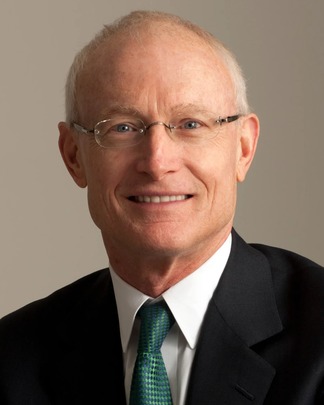
Michael Porter
Michael Porter is the Bishop William Lawrence University Professor and Director of the Institute for Strategy and Competitiveness at Harvard Business School, widely regarded as the father of modern business strategy and one of the most influential thinkers in management and competitiveness. As a leading authority on corporate strategy, economic development, and global competitiveness, Porter has transformed how businesses, governments, and institutions approach complex challenges in competition, sustainability, healthcare, and economic growth. His groundbreaking “Five Forces Framework” remains the foundation of strategic analysis and is taught in business schools worldwide. Throughout his career, Porter has served as a trusted advisor to leading global corporations and policymakers, contributing to U.S. economic policy at both federal and state levels. His extensive research has earned numerous awards, and he continues to be the most cited scholar in the fields of economics and business, shaping the way organizations think about strategy, competitive advantage, and long-term value creation.
Michael Porter Professional Experience / Academic History
Professional Experience
-
Bishop William Lawrence University Professor
-
Director of the Institute for Strategy and Competitiveness
Academic History
-
Ph.D., Business Economics
-
M.B.A., George F. Baker Scholar
-
B.S., Aerospace and Mechanical Engineering
RESEARCH EXPERTISE
Michael Porter, widely regarded as the father of modern strategy, is one of the most influential figures in management and competitiveness.
His research has shaped business thinking, government policy, and academic discourse across the world.
Porter's work on economic development in America’s inner cities led to the creation of The Initiative for a Competitive Inner City (ICIC), a nonprofit organization promoting inclusive economic growth, where he serves as Chairman Emeritus.
He is the recipient of 22 honorary doctorates and numerous national and international honors. His groundbreaking ideas—captured in seminal works such as Competitive Strategy (1980), Competitive Advantage (1985), and What is Strategy? (1996)—are core to business education globally and continue to influence corporate strategy, public policy, and economic development.
Porter has advised governments, corporations, and nonprofit organizations on strategy, competitiveness, and economic reform.
His corporate advisory experience spans leading global enterprises, including Caterpillar, DuPont, Procter & Gamble, Royal Dutch Shell, Scotts Miracle-Gro, SYSCO, and Taiwan Semiconductor Manufacturing Company (TSMC).
He serves on the boards of Thermo Fisher Scientific and Parametric Technology Corporation and acts as senior strategy advisor to the Boston Red Sox.
Porter has counseled governments across more than 20 countries—including Canada, India, Ireland, Rwanda, Saudi Arabia, Singapore, and the UK—on national competitiveness and economic strategy.
PORTER’S FIVE FORCES FRAMEWORK
Rivalry Among Existing Competitors – Measures how intensely firms compete within an industry; high rivalry limits profitability.
Threat of New Entrants – Evaluates how easily new competitors can enter the market; strong barriers to entry protect incumbents.
Bargaining Power of Suppliers – Assesses how much control suppliers have over pricing and quality; fewer or more unique suppliers increase their leverage.
Bargaining Power of Buyers – Examines customer influence over pricing and terms; powerful buyers can pressure margins.
Threat of Substitutes – Considers the likelihood of customers switching to alternative products or services; substitutes cap pricing power.
